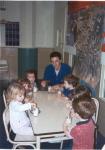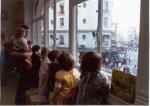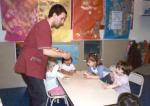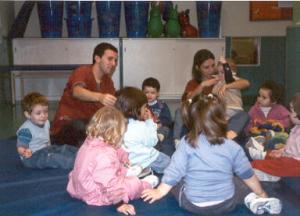Early educator working with infants
I’m an early child educator and I work daily with a one-year old group of children in Buenos Aires, Argentina.
My work as a teacher isn’t, however, my unique way of interest in this topic (i.e. the male teachers) I am studying at San Andres University and I’m planning to do my thesis about male teachers in early childhood education.
How long have you been teaching?
I’ve been teaching since 1996.

Why did you begin teaching?
I was a music teacher, and my students were between 2 and 12 years old. The age classes where I felt more “myself” were those of the youngest. The discipline (the knowledge discipline, the music) was something like a frontier, a limit inside of which I had to work. Many ideas I had were not allowed as a music teacher, and it was neccesary to be “the teacher” of the group to work on it. That’s why I decided to study to be a early education teacher (“mestro jardinero,” in Spanish).
 What is your classroom like?
What is your classroom like?
I work with 15 children from 1 to 2 years old. I have a “partner” (that’s not the word, she is, another teacher that works with me in the same classroom, with the same children, something like an assistant).
How do parents and people respond?
In general, very well. Even so, every day I try to find an identity. I face (in the words of an Australian researcher, J. Sumison) “the challenge of balancing socially sanctioned attributes of masculinity with those attributes traditionally associated with the nurturing of young children. This requires careful and continual ‘positioning,’ ‘possible ways of being’ within ‘the doing of every day life in the preschool.”
In Argentina it’s a “progresist” attitude by a school to take a male teacher for the kinder.
Are there other men teaching young children?
Yes, in Buenos Aires there are at least four (including me).
You’ll have to forgive my poor English, my reading is much better than my writing.

